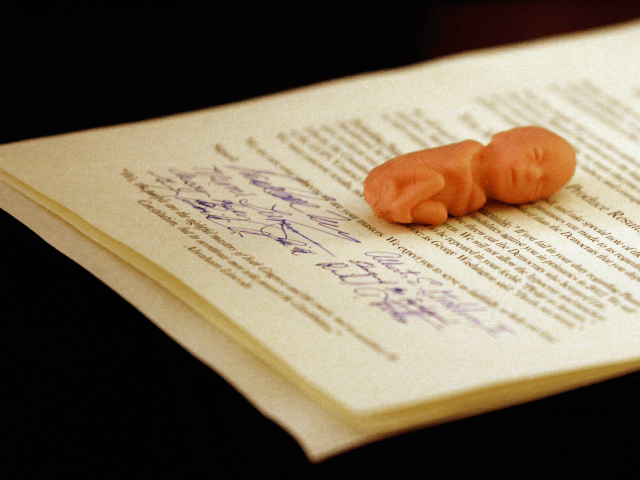A federal judge in Indiana delivered a mixed ruling on Tuesday which kept some abortion laws in the state but struck down others.
Indiana has passed several restrictions to abortion in recent years. Judge Sarah Evans Barker dealt some blows to the pro-life movement by siding with the abortion clinic challenger but kept several key provisions of the Hoosier State’s new laws.
Whole Woman’s Health Alliance fought to open an abortion clinic in South Bend after initially being denied a license.
Many state statutes that were struck down had to do with restrictions on telemedicine care. Under the ruling, the state cannot prohibit the use of telemedicine in “abortion care.” The state also is not allowed to require women to be physically present at an abortion facility in order to obtain abortion medication, court documents show.
Barker wrote in her opinion:
The State’s attempt to explain its basis for excluding the far-reaching benefits of telemedicine from this category of patients is feeble at best, especially given the widespread use of telemedicine throughout Indiana as well as the overall safety of medication abortions.
Drug-induced abortions “for the first time made up a majority of abortion procedures in Indiana during 2020,” ABC News reported.
“Medication abortions represented 55 percent of Indiana’s total of 7,756 abortions last year, about double the state’s rate from 2016,” according to the report.
Judge Barker also ruled the state cannot require women seeking an abortion to be informed that “objective scientific information shows that a fetus can feel pain at or before twenty weeks of post fertilization age” and that “Human physical life begins when a human ovum is fertilized by a human sperm,” which has been a provision since 2011.
Barker found the requirement about when life begins to be unconstitutional and wrote that the “mandatory disclosure does not communicate truthful and non-misleading information.”
Moreover, the state is barred against mandating the dissemination of a perinatal hospice brochure that says, “studies show that mothers who choose to carry their baby [sic] to term recover to baseline mental health more quickly than those who aborted due to fetal anomaly,” according to court records.
Judge Barker, who President Ronald Reagan nominated in 1984, kept many aspects of Indiana’s abortion laws, ruling in favor of Indiana Attorney General Todd Rokita, Commissioner of the Indiana State Department of Health Kristina Box, President of the Indiana Medical Licensing Board of Indiana John Strobel M.D., and St. Joseph County Prosecutor Kenneth P. Cotter.
The state is allowed to limit the provision of first trimester aspiration abortion care to physicians and is allowed to require an ultrasound to be performed before an abortion. The administration of any abortion-inducing drugs must also comport with the Food and Drug Administration (FDA) guidelines.
The judge additionally allowed to state to keep several statutes involving data collection. Abortion providers must collect detailed information about their patients and keep them in a central database maintained by the health department. Providers must also keep records of how they dispose of “fetal tissue,” an issue which has stirred much controversy in recent months.
Minors must still obtain parental consent or a judicial waiver before having an abortion in Indiana. The state is also allowed to mandate patients to delay an abortion for at least 18 hours following the receipt of Indiana’s mandatory disclosures.
Officials can also require the health department to inspect every abortion clinic in the state once annually and to conduct a complaint inspection as needed. Abortion providers must additionally provide a perinatal hospice brochure with information about physical health risks.
“The President and CEO of Indiana Right to Life, Mike Fichter, accused Barker of ‘judicial activism’ and claimed that ‘communities like Fort Wayne and Evansville (are) clearly in the crosshairs for abortion business expansion,'” WPTA TV reported.
Barker has previously ruled against pro-life measures in the state. In 2019, she ruled against Indiana’s ban on dismemberment abortions.
Republican Attorney General Rokita said officials will “continue to fight and defend Indiana’s commonsense abortion laws” and “build a culture of life” in the state.
This case is Whole Woman’s Health Alliance v. Rokita, No. 1:18-cv-1904 in the U.S. District Court for the Southern District of Indiana.

COMMENTS
Please let us know if you're having issues with commenting.